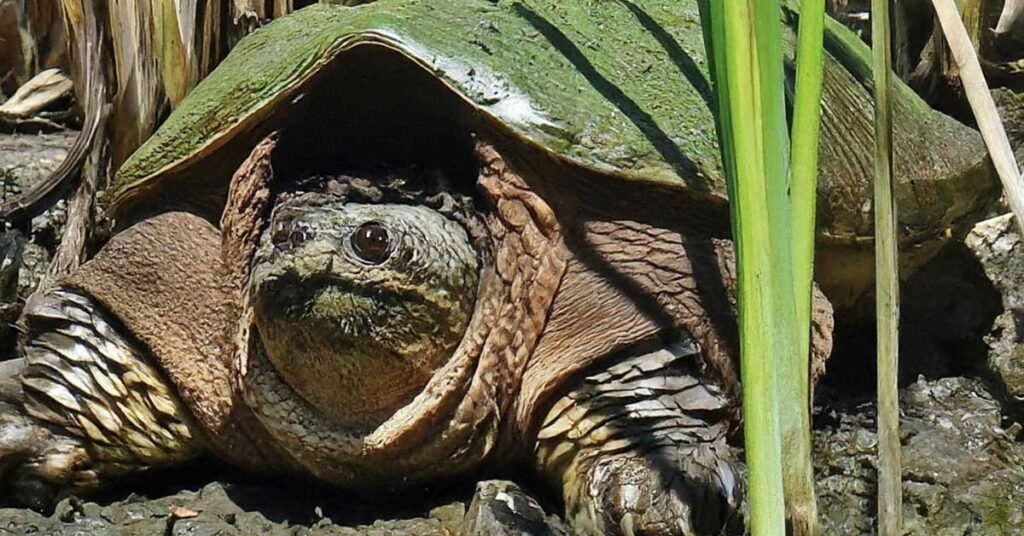As a pet turtle owner, having concerns about your turtle’s disease and diet is common. There are many viruses or bacteria-related diseases that affect humans. Rabies is a virus that spreads through the saliva of infected mammals. Have you ever thought about your pet turtle’s encounter with an infected one, like a raccoon that is affected by rabies? Can turtles get rabies?
The good news is you can relax – turtles are safe from this deadly disease. Even if turtles are secure, let’s investigate the question of whether turtles can contract rabies. You’ll gain some peace of mind and tips for caring for your shelled friend.
Can Turtles Get Rabies?

No, turtles can not get rabies as they are not likely to be infected with this virus. While some reptiles can carry other diseases, rabies isn’t one of them. It means you don’t have to worry about your turtle getting sick from a rabid animal or you. Even though rabies isn’t a threat to your turtle, there are other things to keep in mind for their health and safety.
What Is Rabies?
Rabies is a severe illness caused by a virus. This virus can make animals very sick and even be deadly. It spreads through saliva, the foamy spit in an animal’s mouth. Infected animals might bite or scratch another animal, passing on the rabies virus.
How Rabies Makes Animals Sick
The rabies virus attacks the nervous system, which is like the control center for an animal’s body. It can cause strange behavior, like animals acting unusually friendly or aggressive. They might also have trouble swallowing or drooling excessively.
Why Can’t Turtles Get Rabies?

Rabies is a virus that primarily affects warm-blooded animals like us humans, dogs, cats, raccoons, and foxes. These animals have fur or hair that can regulate their body temperature. Turtles, on the other hand, are cold-blooded animals with shells. They rely on the environment to stay warm.
The rabies virus works differently in warm-blooded animals than it does in cold-blooded animals. It means that the virus can’t survive and spread in turtles the way it can in mammals. So, you can rest easy knowing your turtle friend is safe from rabies.
Double Defense in Turtles’ Nature for Preventing Rabies
Turtles actually have two built-in defenses against rabies: The two key features that make them unlikely to contract or spread rabies are:
- No Saliva Gland: Turtles don’t have saliva glands like mammals. Rabies is transmitted through bites from these glands, which produce saliva that carries the virus. Without these glands, there’s no way for a turtle to transmit rabies through a bite.
- Not Aggressive: Turtles are generally calm and don’t exhibit aggressive behavior towards humans or other animals. This peaceful nature means they’re unlikely to bite a human or another animal, further reducing rabies transmission.
Can Reptiles Get Rabies?

Rabies is a severe illness, but there’s good news for our reptilian friends! The rabies virus can’t be transmitted to reptiles like humans, dogs, and cats.
Here’s a breakdown of why:
Temperature Intolerance
The rabies virus survives in warm-blooded animals. Reptiles, like snakes and lizards, are cold-blooded. It’s hard for them to host the virus since their body temperature is cold and depends on the environment.
Biological Defenses
Even if a reptile were exposed to rabies, their body might have natural defenses that prevent the virus from spreading. These defenses are responsible for their central nervous system (CNS) structure. Rabies travels along the nerves to the brain.
Since reptiles have different nervous systems, the virus might have a more challenging time getting through. Additionally, their unique immune response might fight off the virus before it spreads.
Missing Entry Points
Viruses often need specific points of entry on a host cell to infect it. Research suggests the rabies virus might not find compatible entry points in reptilian cells, making infection difficult.
No Recorded Cases
Scientists haven’t found any documented cases of reptiles naturally infected with rabies. This strong evidence supports the idea that reptiles are not susceptible to the disease.
So, you can relax – your reptile pet is safe from rabies!
Although most reptiles don’t carry rabies, other diseases can spread. It’s always a good idea to wash your hands after handling them, as this helps prevent the spread of different germs.
If you ever see a wild animal acting strangely, leave it alone and call animal control.
Is there any Rare Case of Turtles Getting Infected Or Transmitting Rabies?

Rabies might be a scary thought, but there’s no need to lose sleep over your pet turtle! Scientists haven’t found a single case of a turtle getting rabies naturally. This strong evidence suggests turtles just aren’t susceptible to the virus, as we explained clearly above.
In contrast to warm-blooded animals, their body temperature makes them poor hosts for viruses. Besides, their weak jaws and natural defenses keep them safe from transmitting these types of diseases.
FAQs
Can snapping turtles get rabies?
No, like any other turtle, snapping turtles can not get rabies. In fact, any reptile is safe from this virus. To spread, the rabies virus needs a warm-blooded carrier like a dog, cat, or human. As snapping turtles are cold-blooded animals, even if any rabies virus reaches their body, the virus can not survive in their system.
Can you get rabies from a turtle?
No, there is no chance for a human to get rabies from a turtle. Turtles are not carriers of this virus, so their bodies are unable to spread or transmit it to any other living species.
What’s the best way to prevent Rabies?
Rabies is a concern for warm-blooded mammals like us. Vaccinating your pets (dogs, cats, etc.) is the single most effective way to prevent rabies. It creates a “buffer zone” that reduces the spread of the virus between wild animals and humans.
Be careful when you’re around wild animals, especially if they’re acting strangely. If you encounter a wild animal behaving oddly, leave it alone and contact animal experts.
Read More: Can Turtles Eat Dog Food?
Wrap Up
So, can your pet turtle catch rabies and give it to you? Nope, not a chance! Rabies prefers warm-blooded buddies like humans and dogs, while turtles are cool-blooded – their body temperature is not ideal for this virus. Even if a turtle encountered rabies somehow, their body might have built-in defenses to fight it off.
Also, they’re generally peaceful creatures with weak jaws, making a severe bite unlikely. That’s why you should rest easily, relax, and enjoy your shelled friend – rabies isn’t something you need to worry about together.
